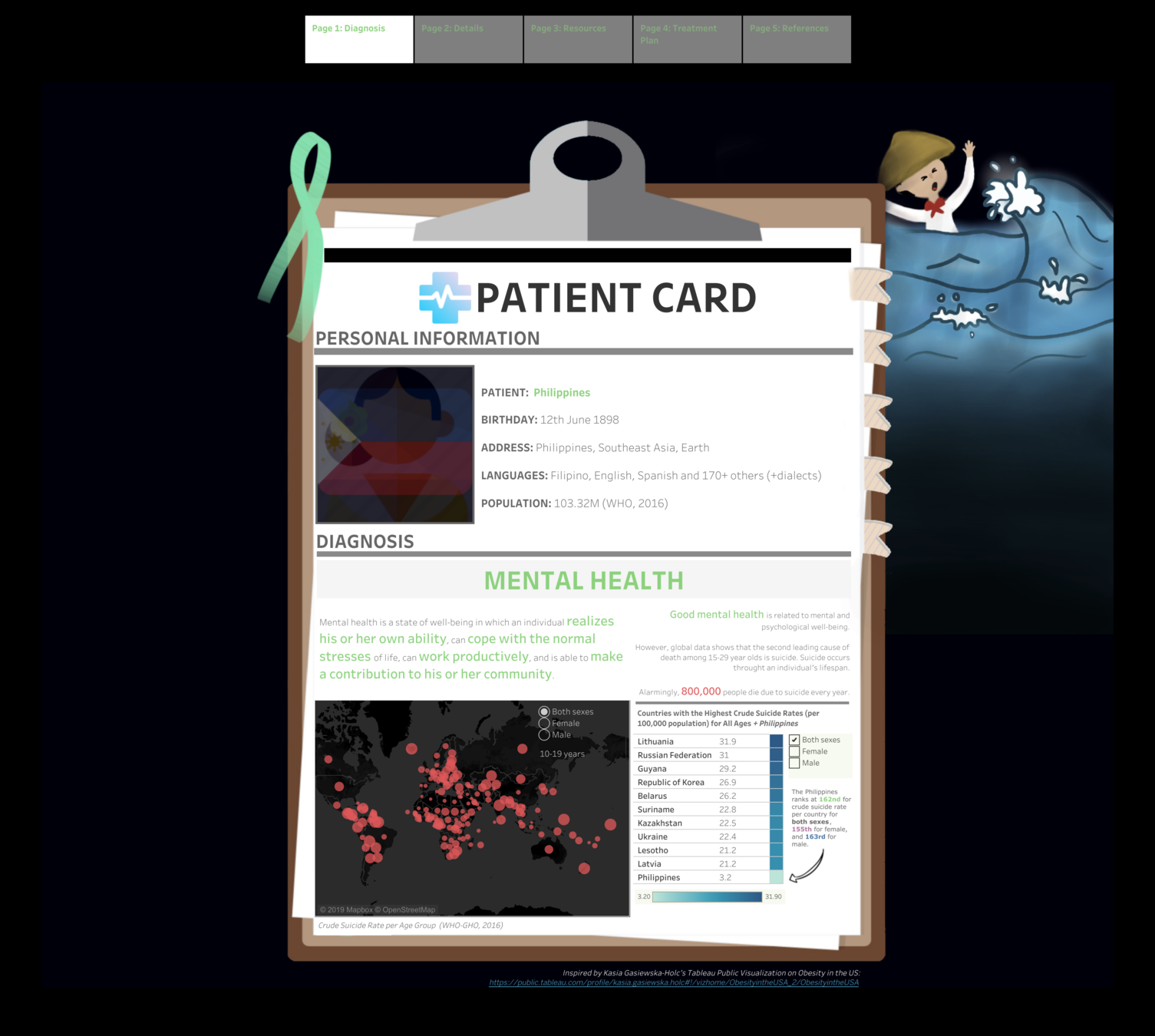Understanding Mental Health
Understanding Mental Health
Mental Health
“a state of well-being in which every individual realizes his or her own potential, can cope with the normal stresses of life, can work productively and fruitfully, and is able to make a contribution to her or his community”


Mental Health
✓ is an integral part of health
Cost-effective public health and intersectoral strategies and interventions should exist to promote, protect and restore mental health.

✓ is more than the absence of mental disorders
✓ is determined by a range of socioeconomic, biological and environmental factors
-
Around 20% of the world's children and adolescents have mental disorders or problems.
-
Over 800,000 people die due to suicide every year and suicide is the second leading cause of death in 15-29-year-olds.
-
Stigma and discrimination against patients and families prevent people from seeking mental health care.
-
Around 20% of the world's children and adolescents have mental disorders or problems.
-
Over 800,000 people die due to suicide every year and suicide is the second leading cause of death in 15-29-year-olds.
-
Stigma and discrimination against patients and families prevent people from seeking mental health care.





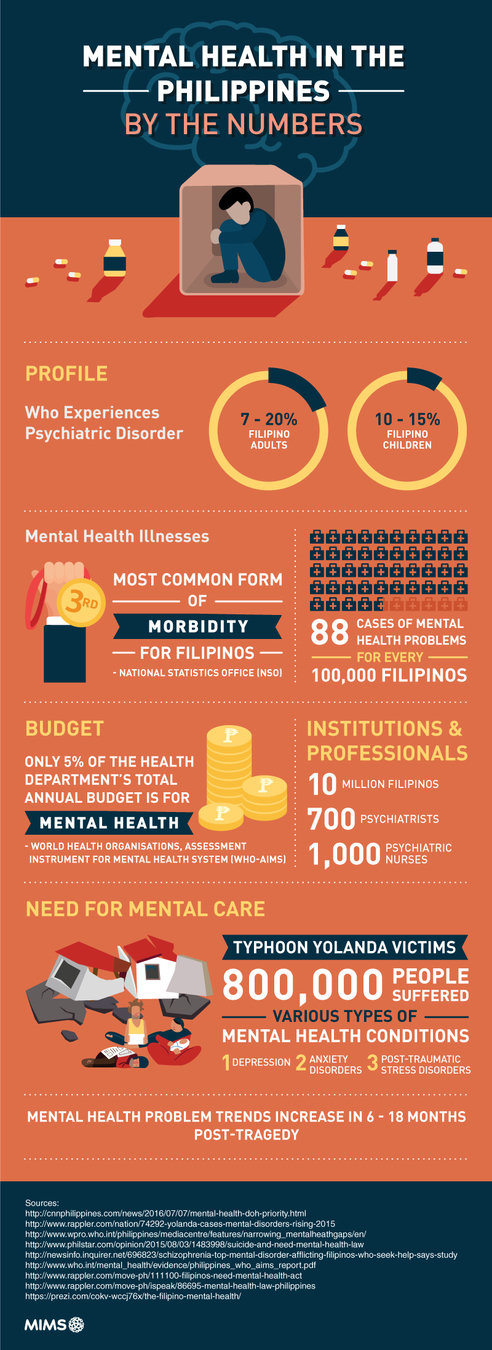

3% 22%
359 Filipino college students
2285 Filipino immigrants and Filipino Americans
On seeking help:

Principles of the Mental Health Act
According to the Act, "Mental Health Condition" refers to a neurologic or psychiatric condition characterized by the existence of a recognizable, clinically-significant disturbance in an individual’s cognition, emotional regulation, or behaviour that reflects a genetic or acquired dysfunction in the neurobiological, psychosocial, or developmental processes underlying mental functioning.
Definition of Mental Illness
Principles of the Mental Health Act
The Act provides for ‘Free Prior Informed Consent’or ‘Informed Consent’, referring to consent voluntarily given by a service user to a plan for treatment. A patient must ‘give prior informed consent before receiving treatment or care, including the right to withdraw such consent’.
Informed Consent
Principles of the Mental Health Act
Under the Act, any person subject to the Act may designate a person of legal age to act as his or her legal representative through a notarized document. This legal representative shall ‘provide the service user with support and help represent his or her interests; receive medical information about the service user in accordance with this Act; assist the service user vis-á-vis the exercise of any right provided under this Act; and be consulted with respect to any treatment or therapy received by the service user’. If a legal representative is not chosen, other persons can act as the legal representative, including the spouse, non-minor children and either parent by mutual consent, if the service user is a minor. A person subject to the Act may also designate up to three persons or ‘supporters’, including the service user’s legal representative, for the purposes of supported decision-making.
Legal representatives and supported decision-making
Other considerations
- protection of the rights of persons with mental disorders in mental health facilities, protection of minors
- provision of resources for mental health facilities
- role of community and culture
- review mechanisms providing for the protection of the rights of offenders with mental disorders
- procedural safeguards protecting the rights of persons with mental disorders
- protection of confidentiality, and standards of care and treatment including involuntary admission and consent to treatment
- ‘Quality of Mental Health Services’ - treatments must be
- based on medical and scientific research findings
- responsive to individual and cultural needs
- provided in the least restrictive setting and
- provided by mental health professionals and workers in a manner that ensures accountability.

Positive Emotions
Danner, D., Snowdon D., and Friesen W., (2002). "Positive Emotions in Early Life and Longevity: Findings from the Nun Study" . University of Kentucky

Danner, D., Snowdon D., and Friesen W., (2002). "Positive Emotions in Early Life and Longevity: Findings from the Nun Study" . University of Kentucky


Danner, D., Snowdon D., and Friesen W., (2002). "Positive Emotions in Early Life and Longevity: Findings from the Nun Study" . University of Kentucky


How de cope with stress during this Pandemic?

70,000
98%
80%
Think about how you are feeling. Don’t ignore your feelings, especially if you don’t feel well.






Recognize what stress looks like.


Avoid negative coping mechanisms
Build resilience and manage stressors
Look after yourself.

Connect to others. Talk to people whom you trust about your concerns.

Identify those which you do not control and do the best you can with the resources available.

Take a break from social media, watching, reading or listening to the news. SAY NO TO FAKE NEWS!

Know the facts about COVID- 19. Be informed from reliable resources.

Increase sense of control by developing a consistent daily routine.

Eat well, prioritize sleep and stay fit

Maintain interests outside of your comfort zone.

If you are treated for a mental health condition, continue with your treatment.

- Keep a diary
- Express your feelings through art, like writing a poem, drawing, dancing, or playing music
- Talk about your feelings and concerns with someone you trust
- Try some breathing exercises. You may find guided breathing exercises online if you have access to internet.


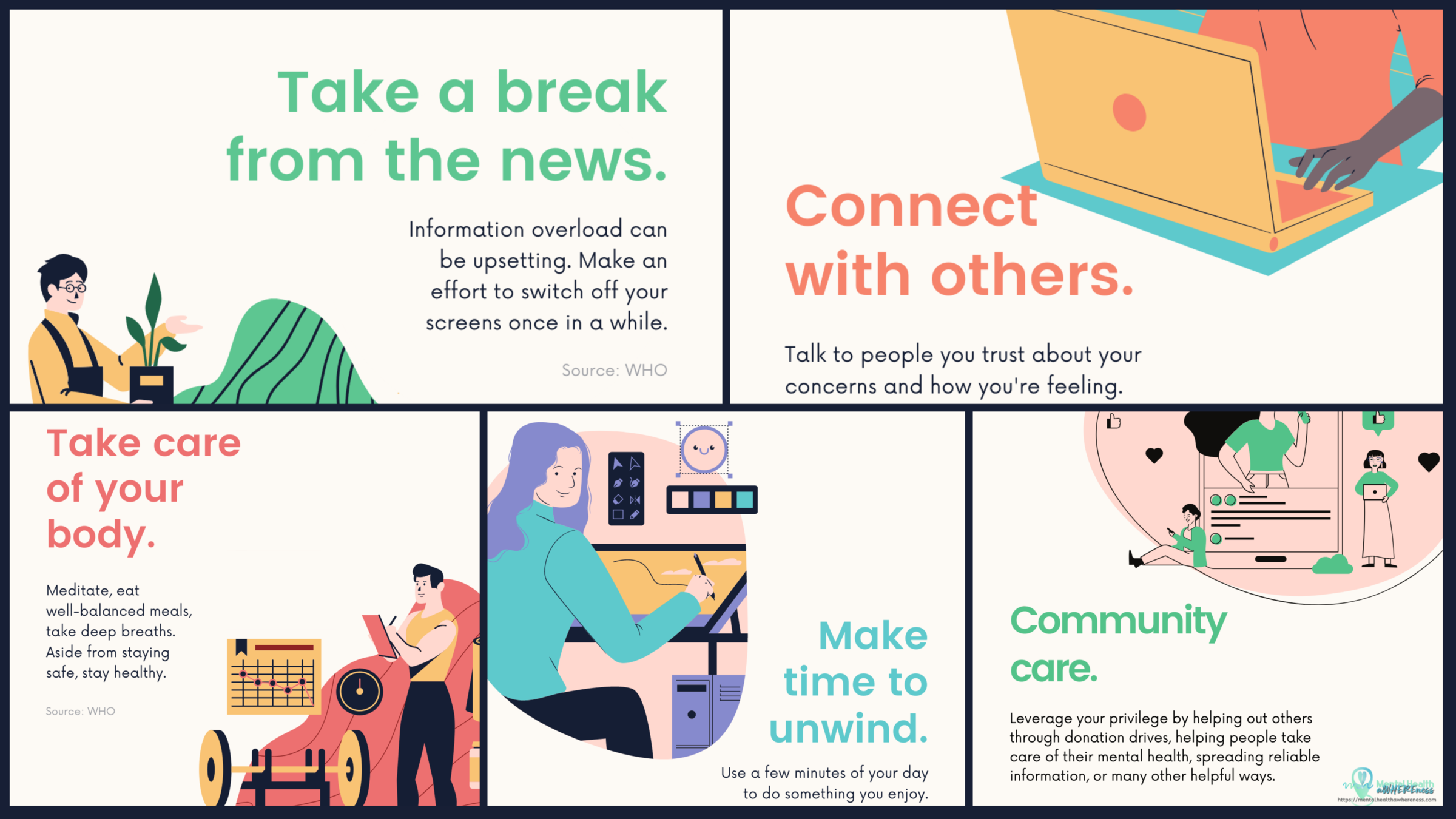


How can we help others cope with stress during the Pandemic?

Encourage active listening and an understanding attitude with the children.
Children usually feel relieved if they are able to express and communicate their disturbing feelings in a safe and supportive environment.

MESSAGES & ACTIVITIES FOR HELPING CHILDREN DEAL WITH STRESS DURING THE COVID-19 OUTBREAK
Encourage an increased sensitive and caring environment around the child.
Manage your own emotions.
Make the children feel loved more often.

Keep regular routines and schedules as much as possible or help create new ones in a new environment.
Provide information about what has happened or could happen in a reassuring, honest and age-appropriate way.

Support adults/caregivers with activities for children during home isolation/quarantine. Activities should explain the virus but also keep children active when they are not at school, for example:
- Hand washing games with rhymes
- Imaginary stories about the virus exploring the body
- Make cleaning and disinfecting the house into a fun game
- Draw pictures of virus/microbes’ that to be coloured by children
- Explain person protective equipment (PPE) to children so that they are not scared

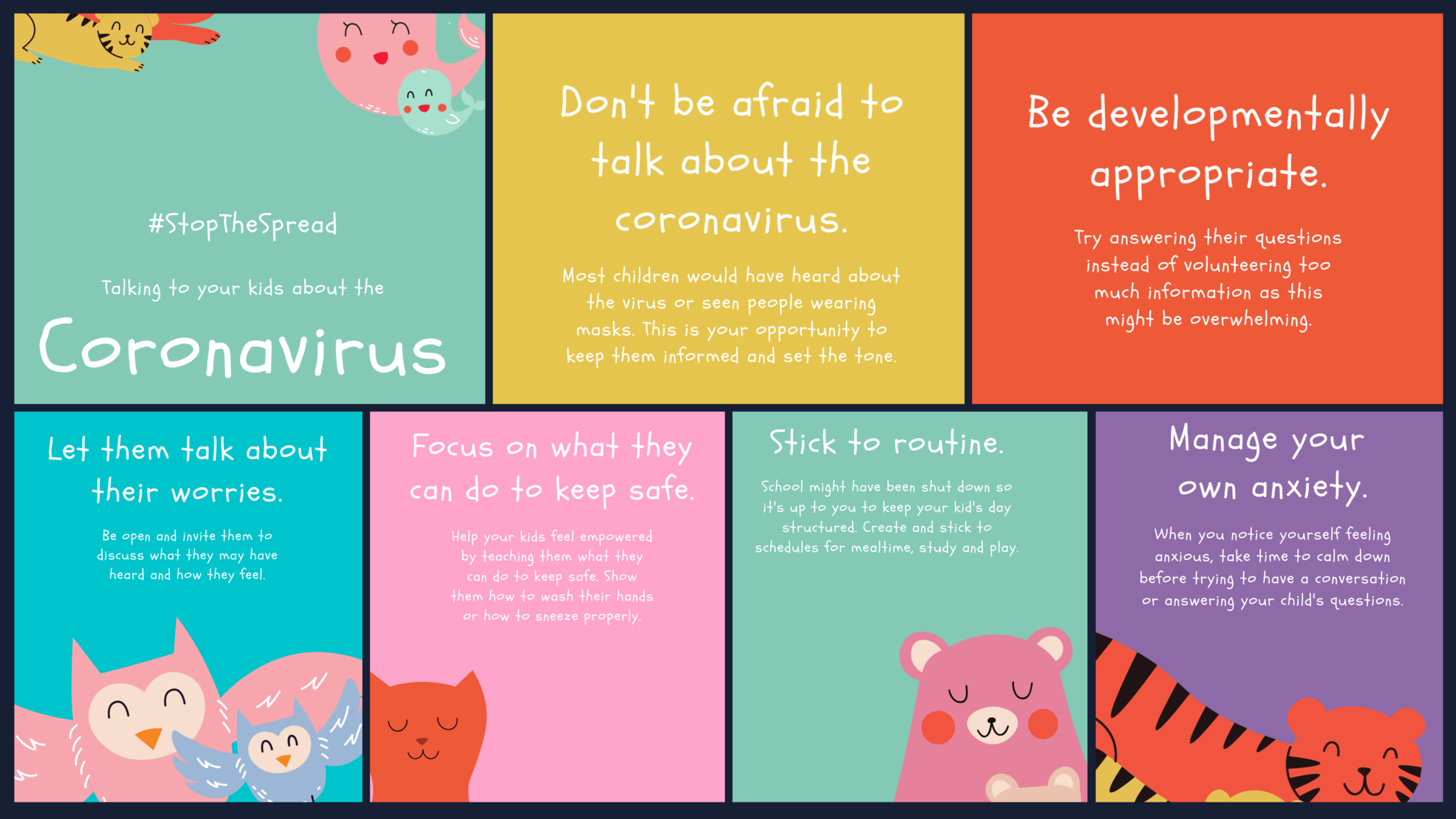

HELPING OLDER ADULTS COPE WITH STRESS DURING THE COVID-19 OUTBREAK
Older people may have limited access to messaging apps, like Viber, WeChat, Telegram, Facebook Messenger, etc.
-
Provide older adults with accurate accessible information and facts about the COVID-19 outbreak, the progression, treatment, and effective strategies to prevent an infection.
-
Information needs to be easily accessible (i.e. clear, simple language, large font) and come from multiple trusted (media) sources (public media, social media and trustworthy health care providers) to prevent irrational behavior such as stocking of non-effective medical herbs.
-
Encourage family or friends to call their older relatives regularly and teach older people how to use video(chat).

Older people might not be familiar with the use of protective devices or prevention methods or refuse to use them.
- Instructions on how to use protective devices need to be communicated in a clear, concise, respectful, and patient way.

Older people may not know how to use online services such as online shopping for daily supplies, consultation/helplines, or health care.
- Provide older people with details and how to get practical help if needed, like calling a Taxi, or dropping off supplies.
- Availability of goods and services such as preventive materials (e.g., facial masks, disinfectants), sufficient grocery supplies, and emergency transportation access can reduce anxiety in everyday life.

Teach older people simple physical exercises to perform at their home/in quarantine to maintain mobility and reduce boredom.

How to support someone with a mental health problem
Know the signs.
https://www.mentalhealth.org.uk/publications/supporting-someone-mental-health-problem
How to support someone with a mental health problem
https://www.mentalhealth.org.uk/publications/supporting-someone-mental-health-problem
Talk to them.
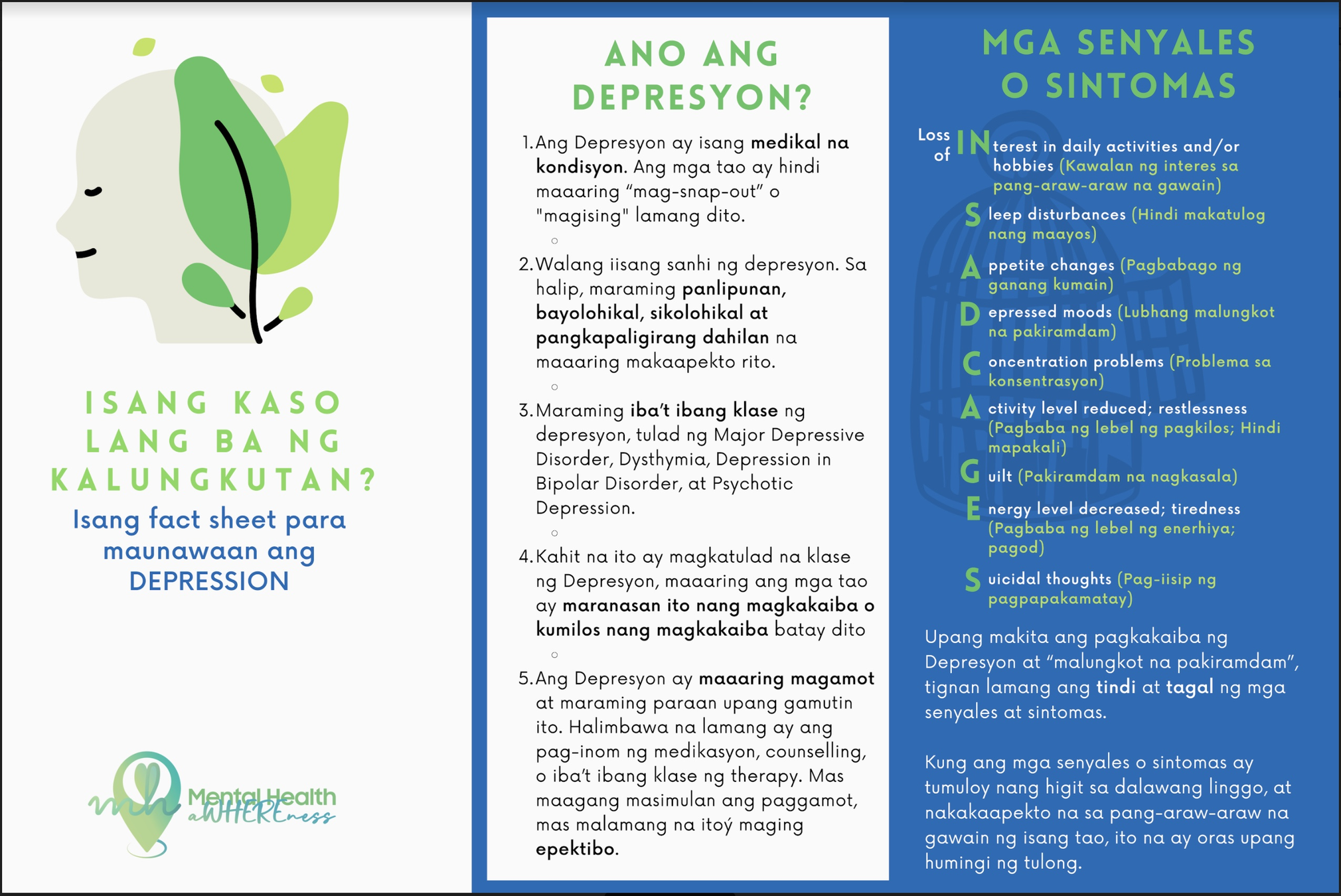
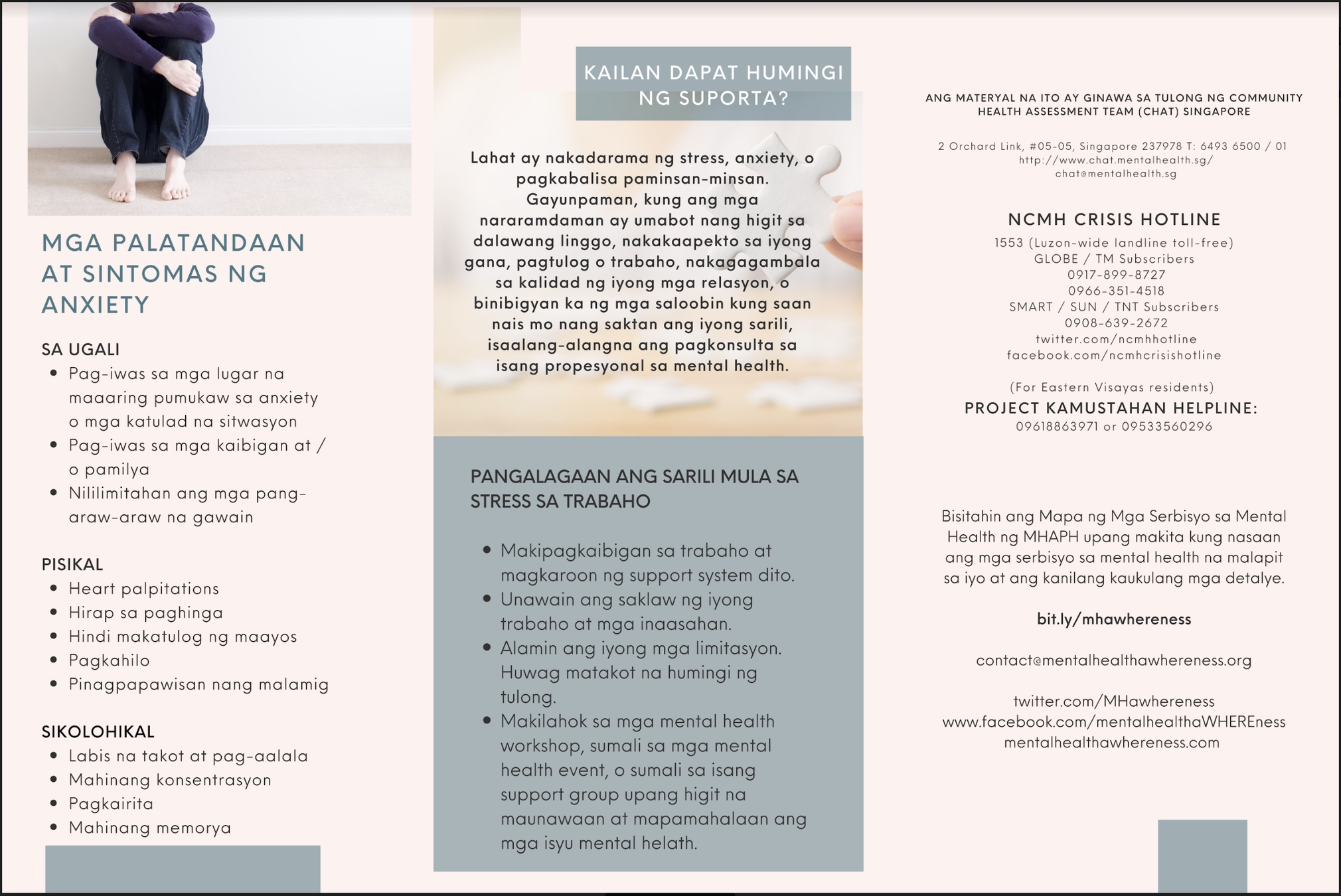
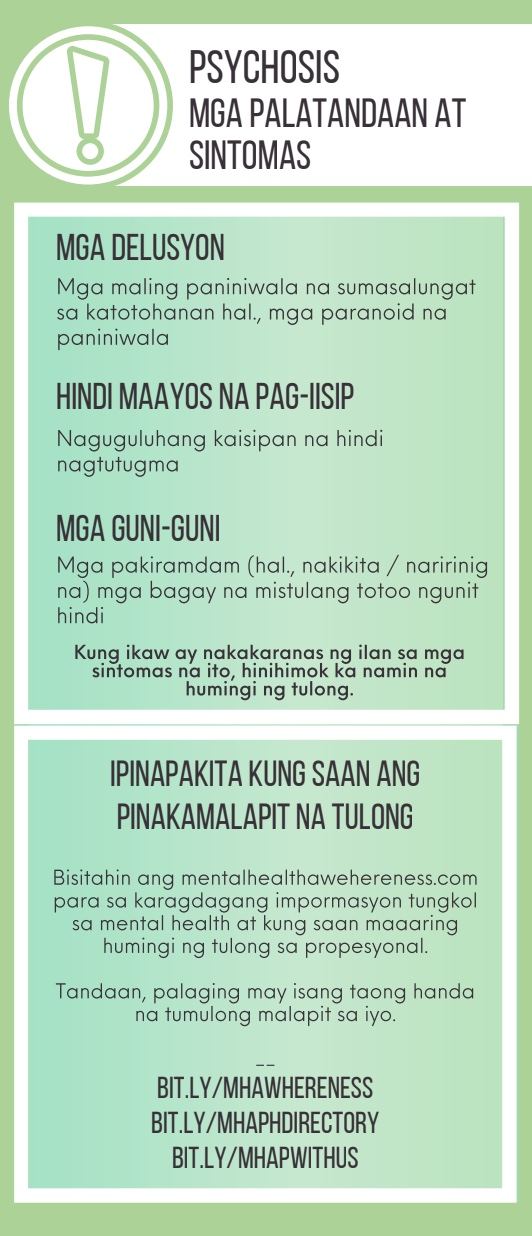



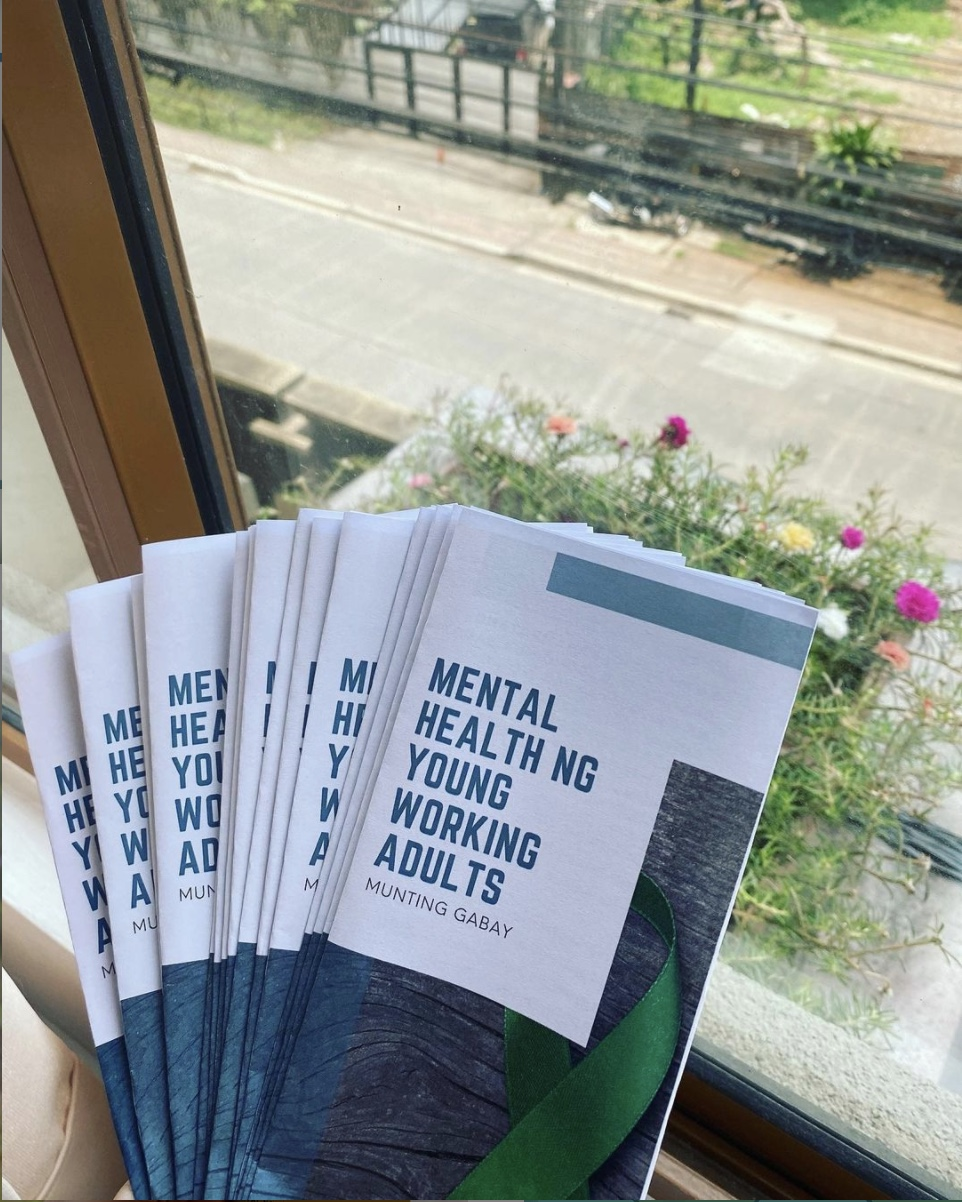


Mental Health AWHEREness aims to promote mental health awareness through information, education, communication, and mapping of available mental health services and their corresponding important information that would help and encourage people to seek mental healthcare without telling others until they are ready to do so; and to tell decision-makers where more mental health services are needed.
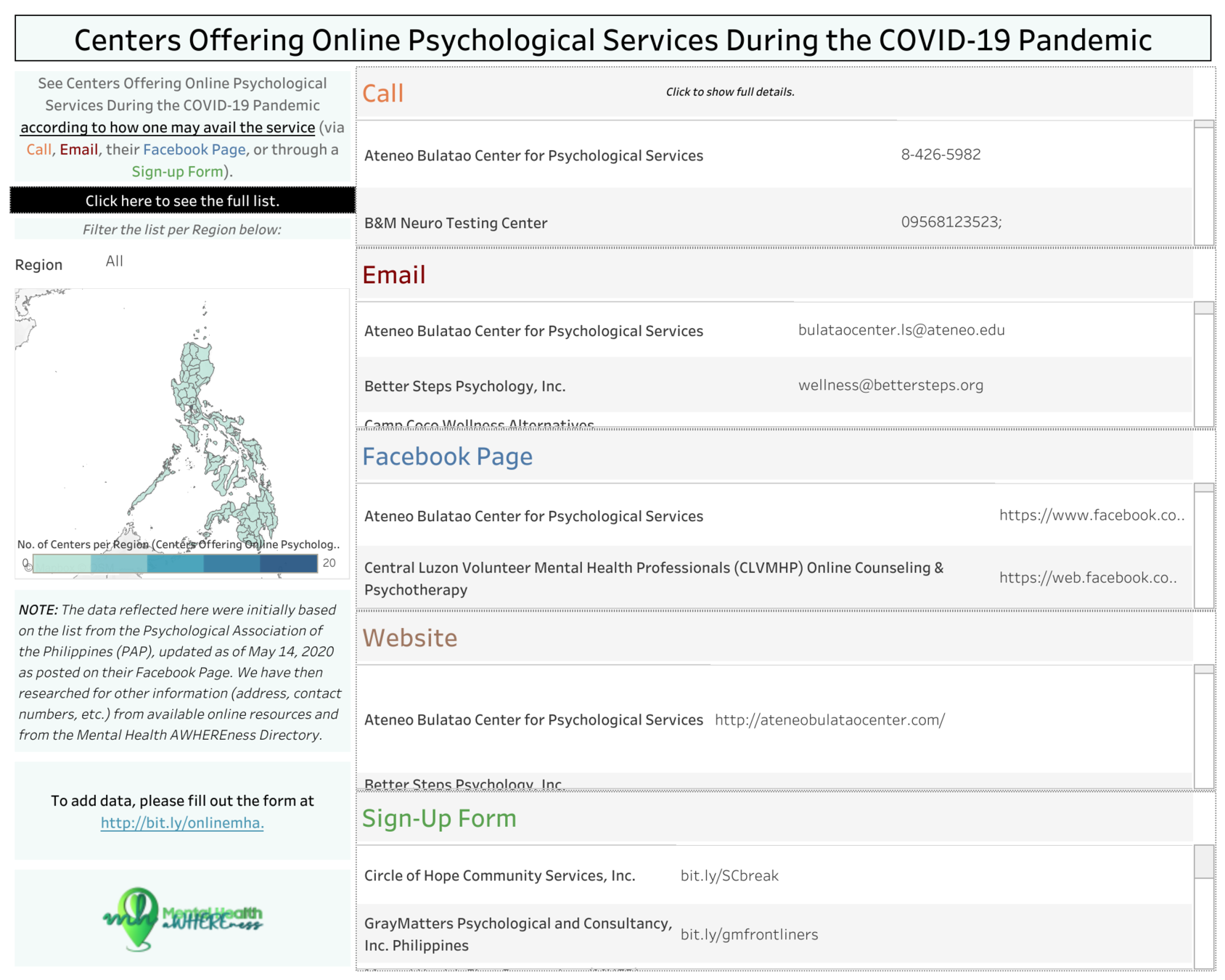

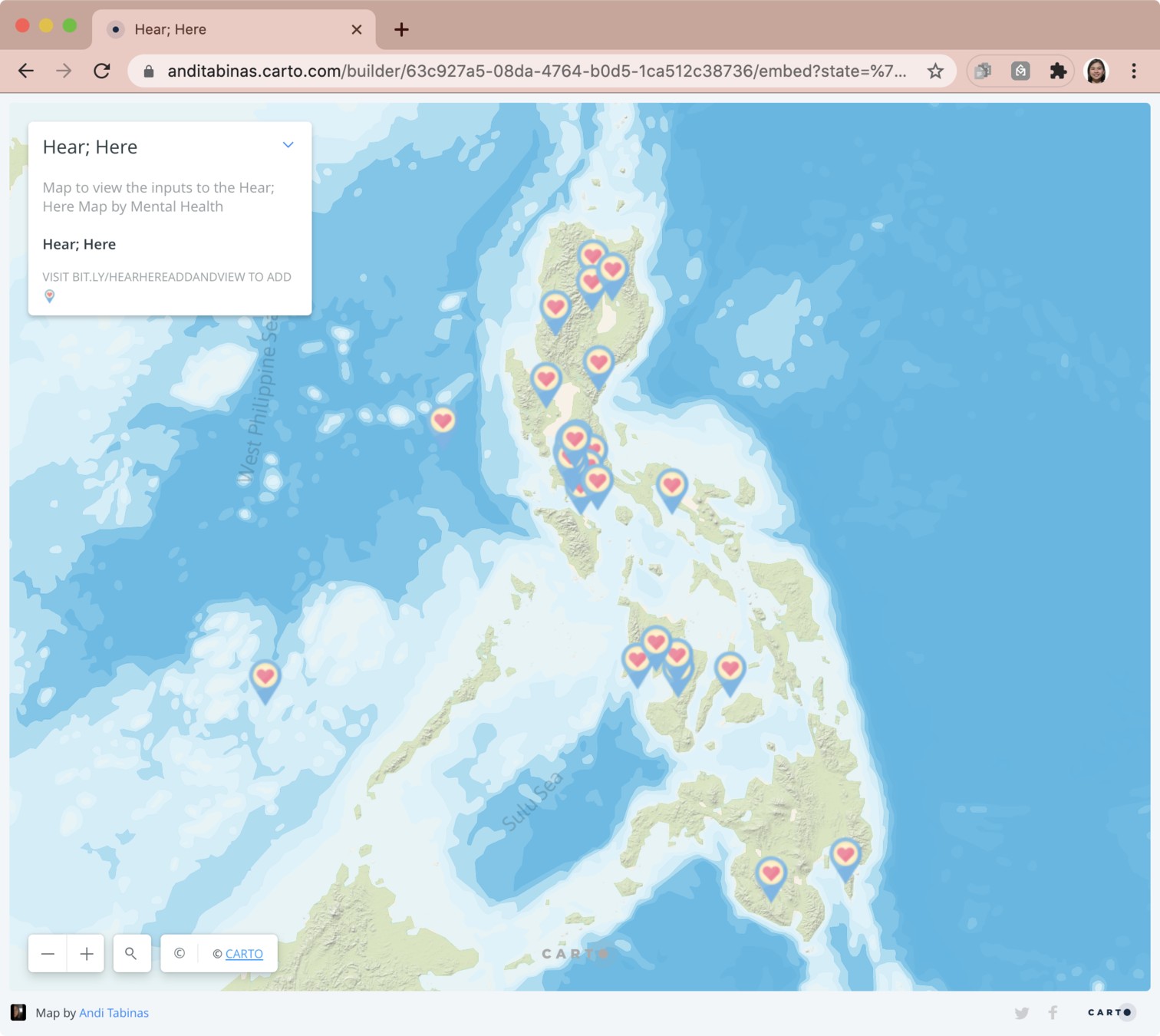
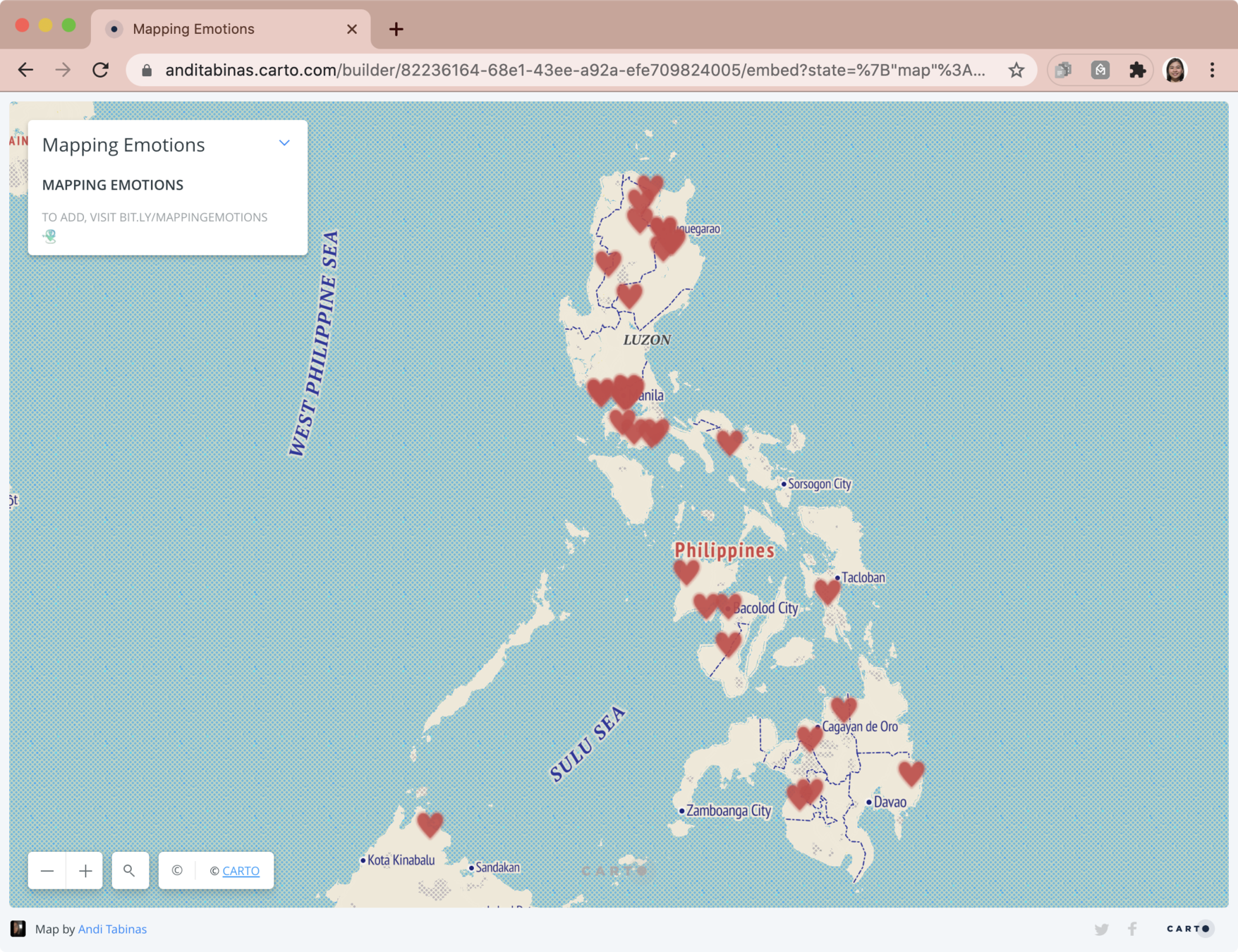


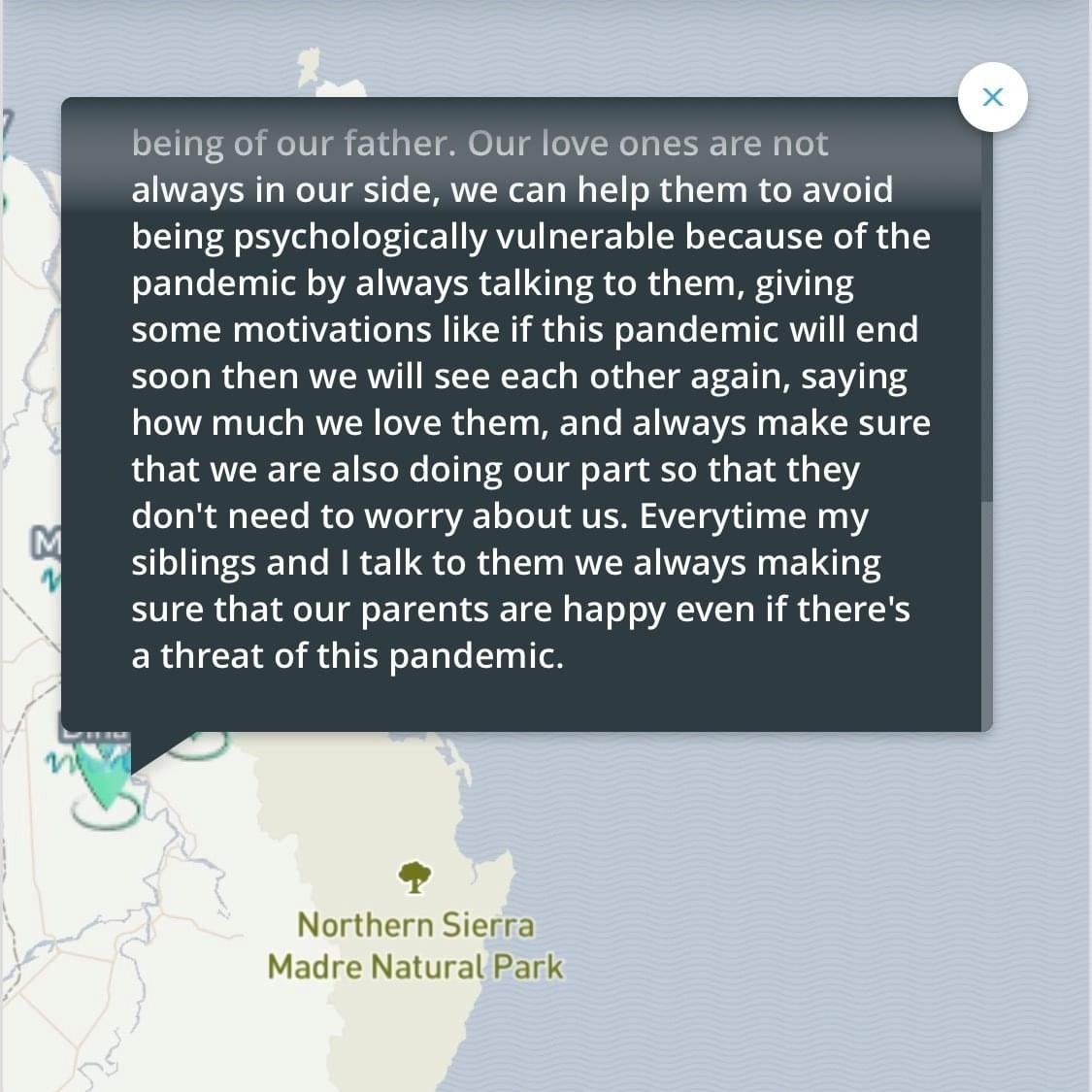
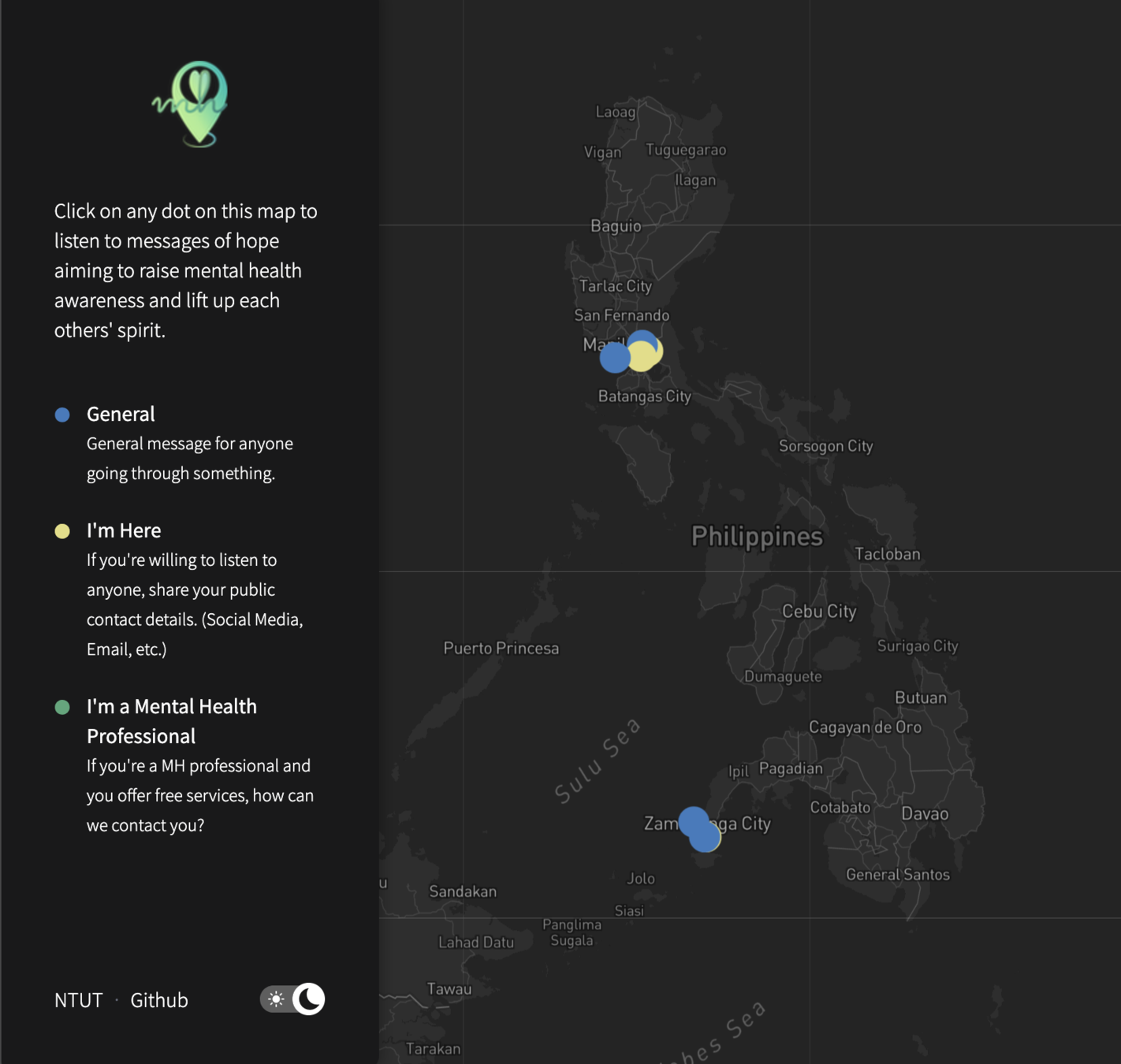
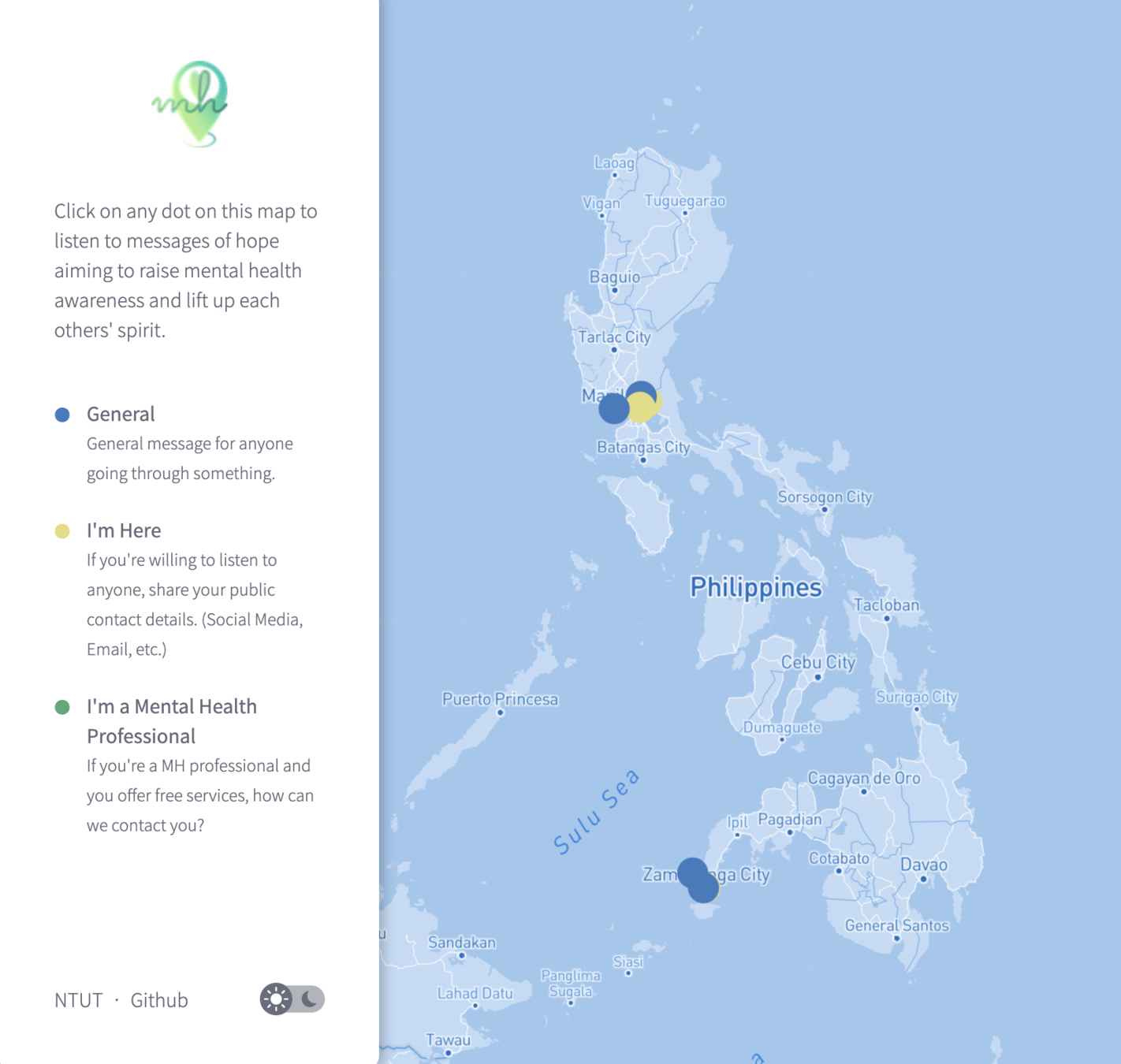
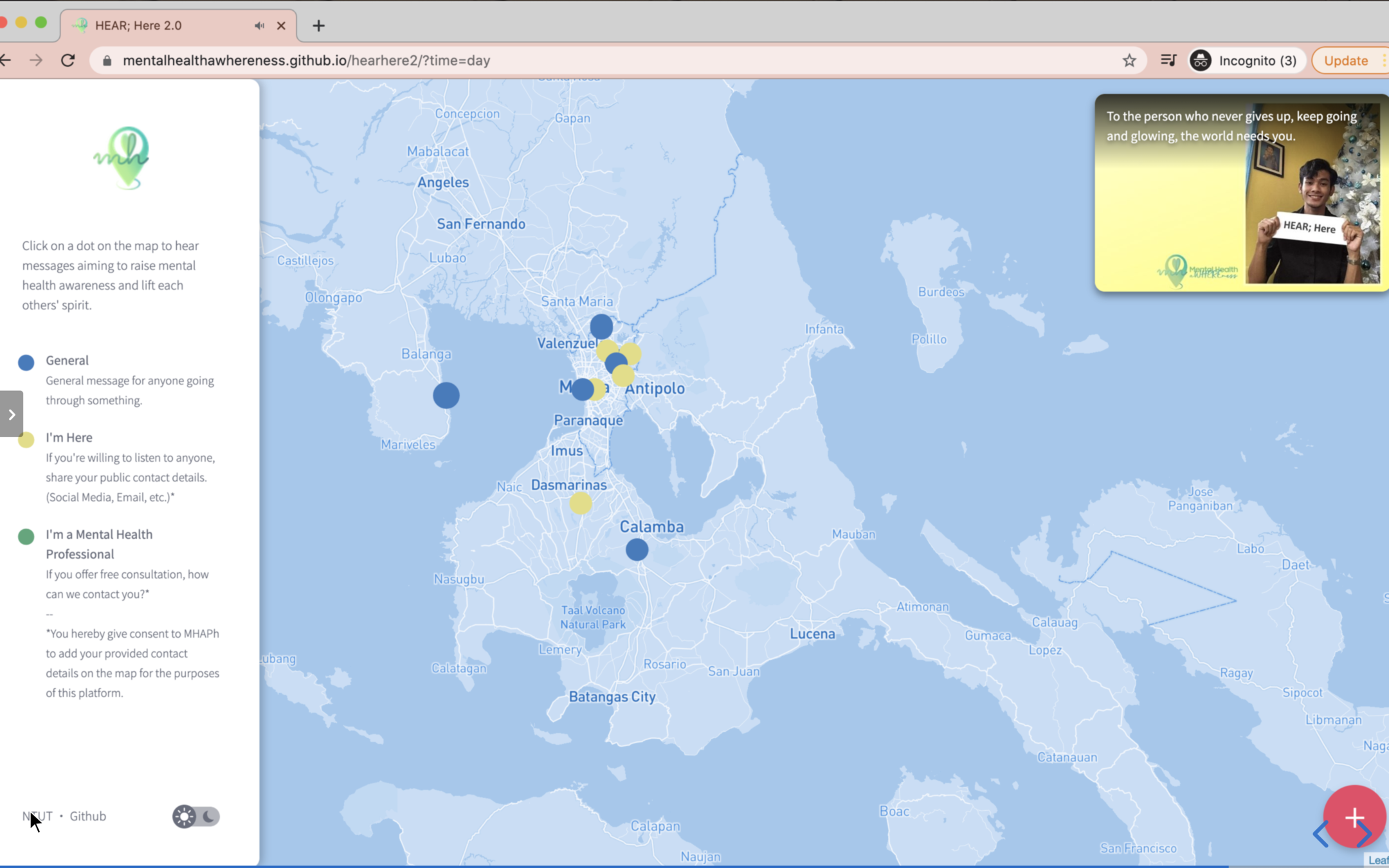




anditabinas@mhawhereness.org
exteandpartnerships@mhawhereness.org
https://facebook.com/mentalhealthawhereness
https://twitter.com/MHawhereness
techandmapping@mhawhereness.org
contact@mhawhereness.org
https://youtu.be/kQe4r160xgM
Understanding Mental Health
By Sandra Tabinas
Understanding Mental Health
- 426

